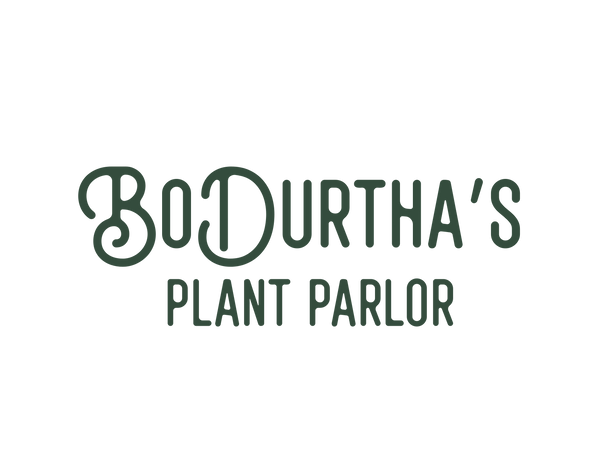Monstera Esqueleto Care
Monstera esqueleto (Monstera epipremnoides)
Overview
- Highly fenestrated, delicate leaves with a skeletal appearance
- Rare and sought-after species prized by collectors
- Fast-growing when given vertical support and humidity
- Best grown on a moss pole to allow full leaf development
Monstera esqueleto, sometimes known as Monstera epipremnoides or the “skeleton” monstera, is one of the most dramatic species in the genus. Each leaf is a work of architecture—paper-thin, highly fenestrated, and almost surreal in structure. Despite its fragile appearance, this plant is a vigorous climber when conditions are right. At BoDurtha’s, we recommend it to those who appreciate complexity and form—an airy sculpture that grows more captivating with height.
Origins
Native to the humid rainforests of Costa Rica, where it climbs trees in search of filtered sunlight. Unlike its more familiar cousins, this species develops extraordinarily perforated leaves early in its growth.
Light Requirements
Bright, indirect light is essential for healthy growth and leaf development.
- Too much direct sun may scorch its delicate leaves
- Too little light may result in smaller, less fenestrated foliage
- Supplement with a grow light if natural light is insufficient
Watering
Water when the top 1–2 inches of soil are dry.
- Maintain consistent moisture—avoid both drought and sogginess
- Use a pot with drainage to prevent root rot
- Humidity above 60% is ideal to protect leaf edges and promote growth
Soil & Potting
Plant in a chunky, breathable Aroid Mix.
- Incorporate orchid bark, perlite, and coco coir for aeration
- Use a tall container to accommodate a sturdy moss pole
- Repot every 1–2 years or when roots become crowded
Fertilizer
Feed monthly during the growing season with a balanced liquid fertilizer at half strength.
- Too much fertilizer may damage delicate roots and foliage
- Hold off during winter or if growth slows noticeably
Recommended Growth Style: Moss Pole
Vertical support is essential for Monstera esqueleto to express its full potential.
- Encourages larger, more fenestrated leaves
- Mist the moss pole regularly to assist aerial root attachment
- Train early vines to climb cleanly—this helps maintain symmetry
Final Notes
Monstera esqueleto offers a near-ethereal presence—an unusual blend of delicacy and vigor. At BoDurtha’s, we see it as a collector’s centerpiece: not for every space, but unforgettable in the right one. It asks for intention, and in return, it delivers sculptural drama, botanical elegance, and something close to wonder.
